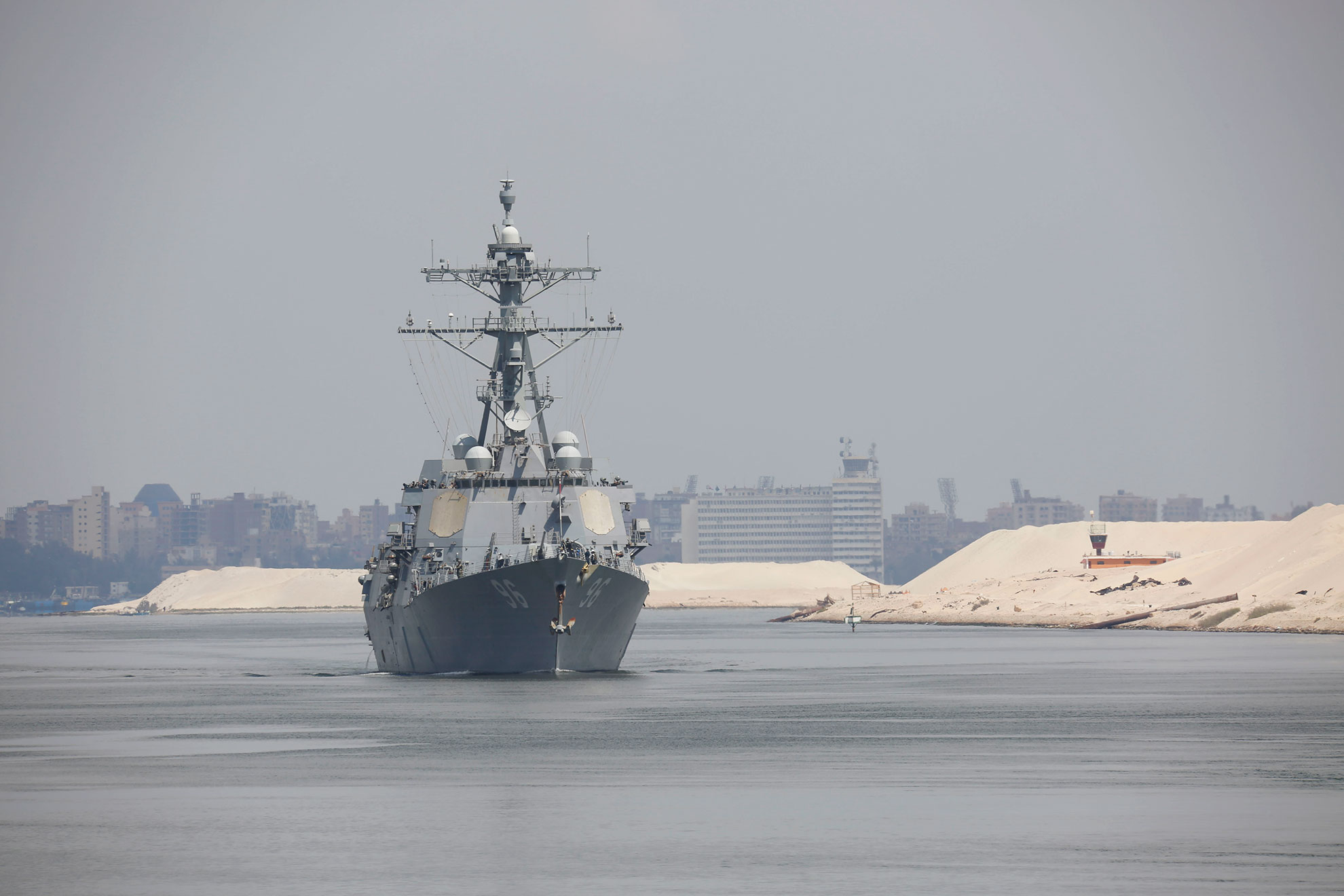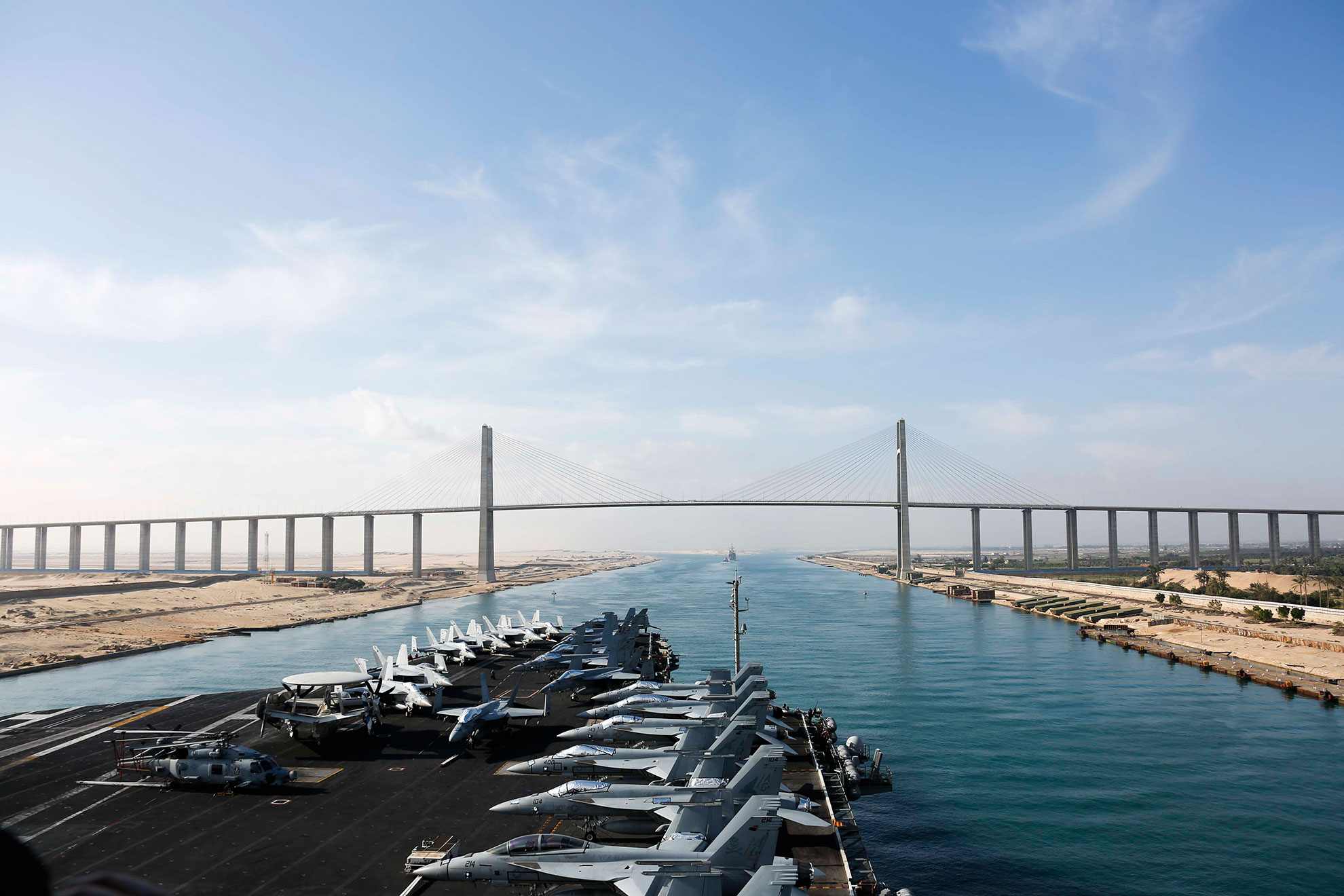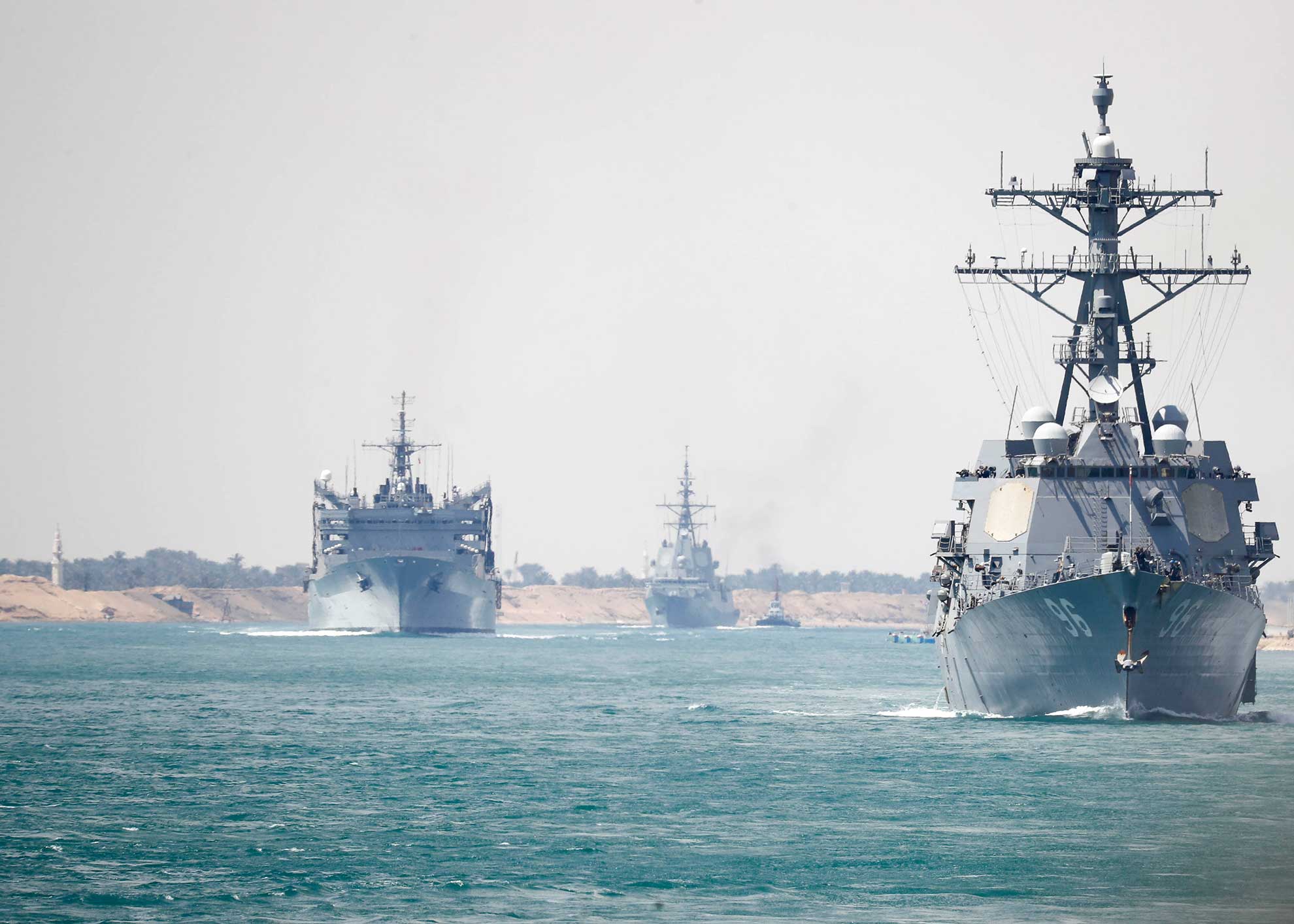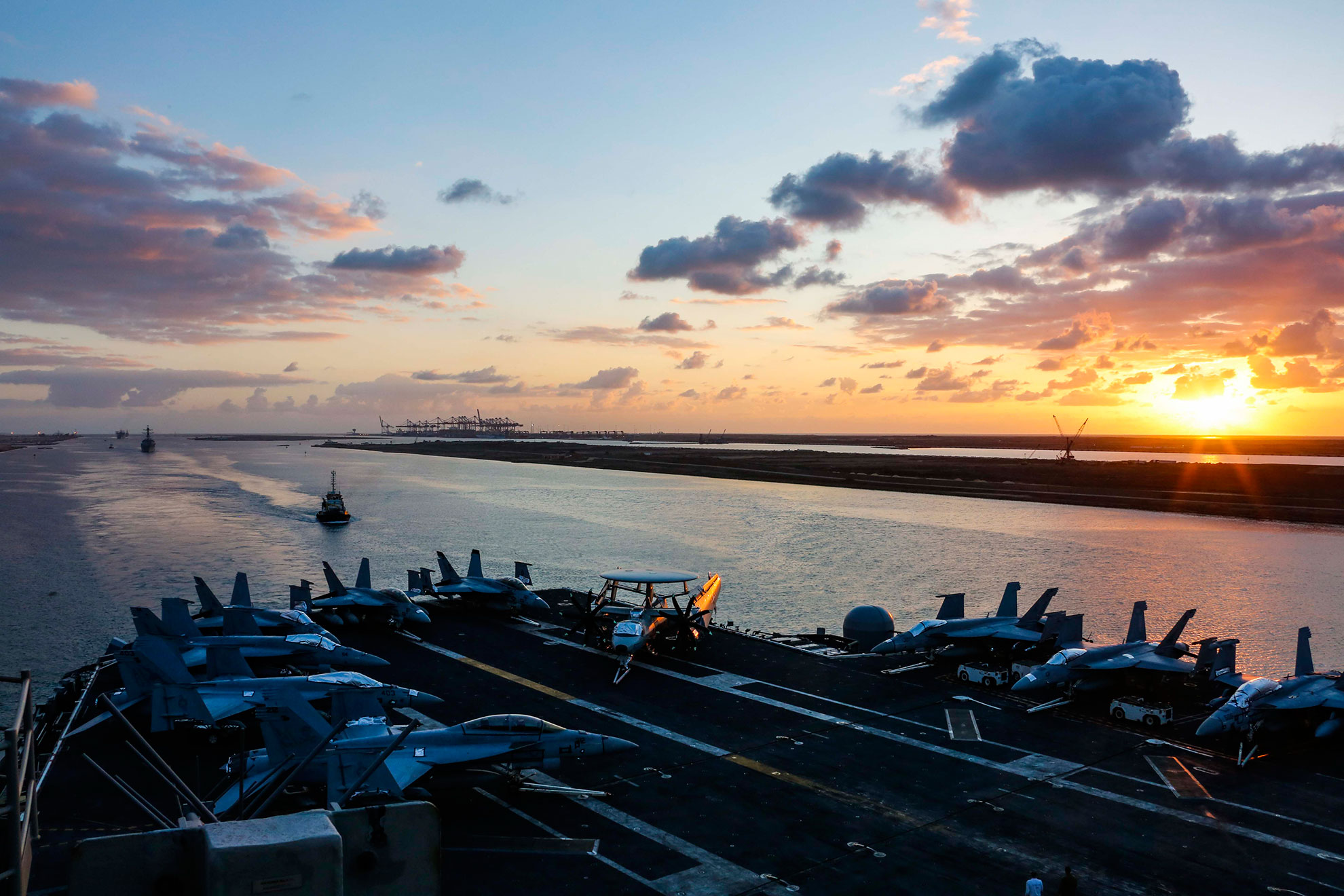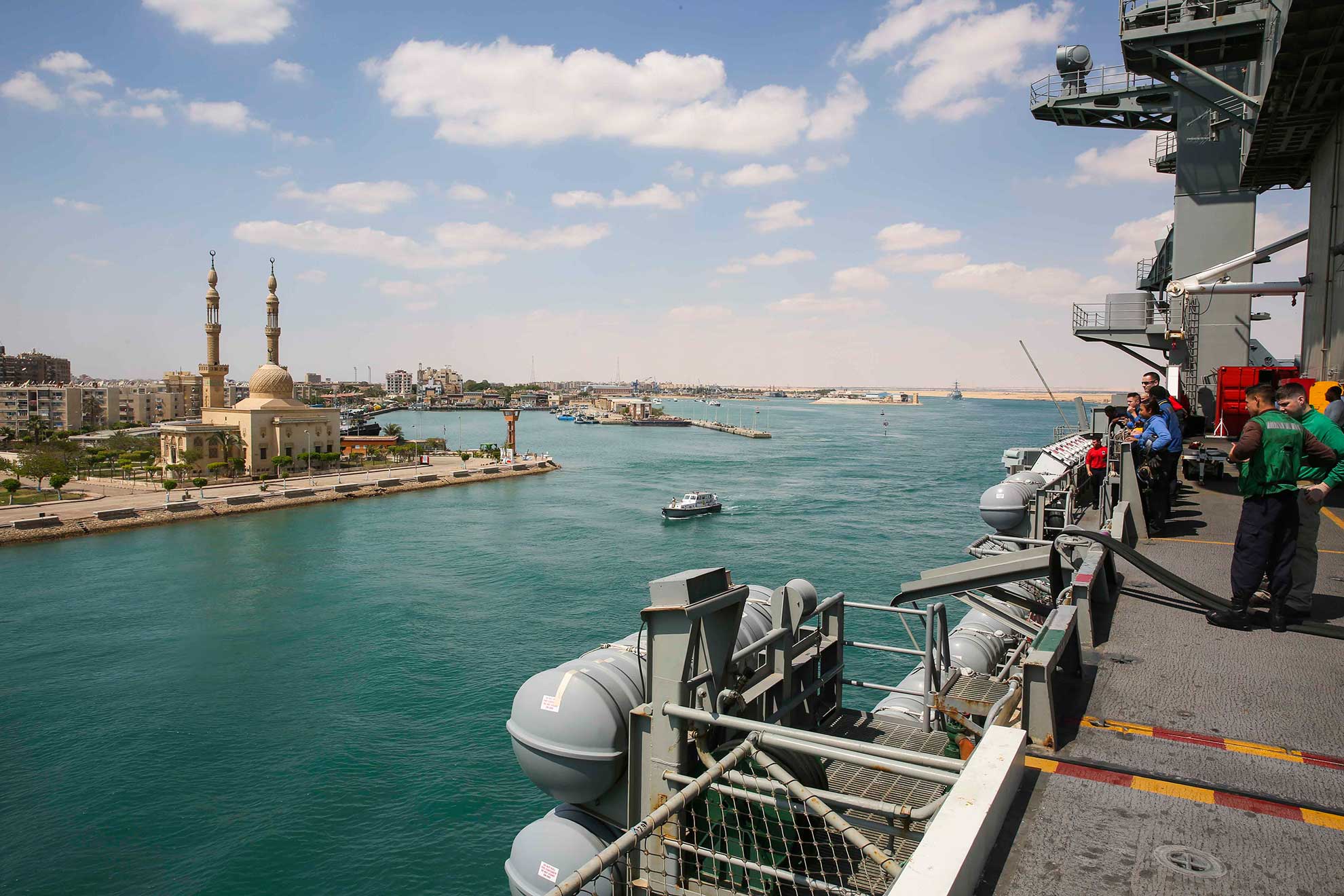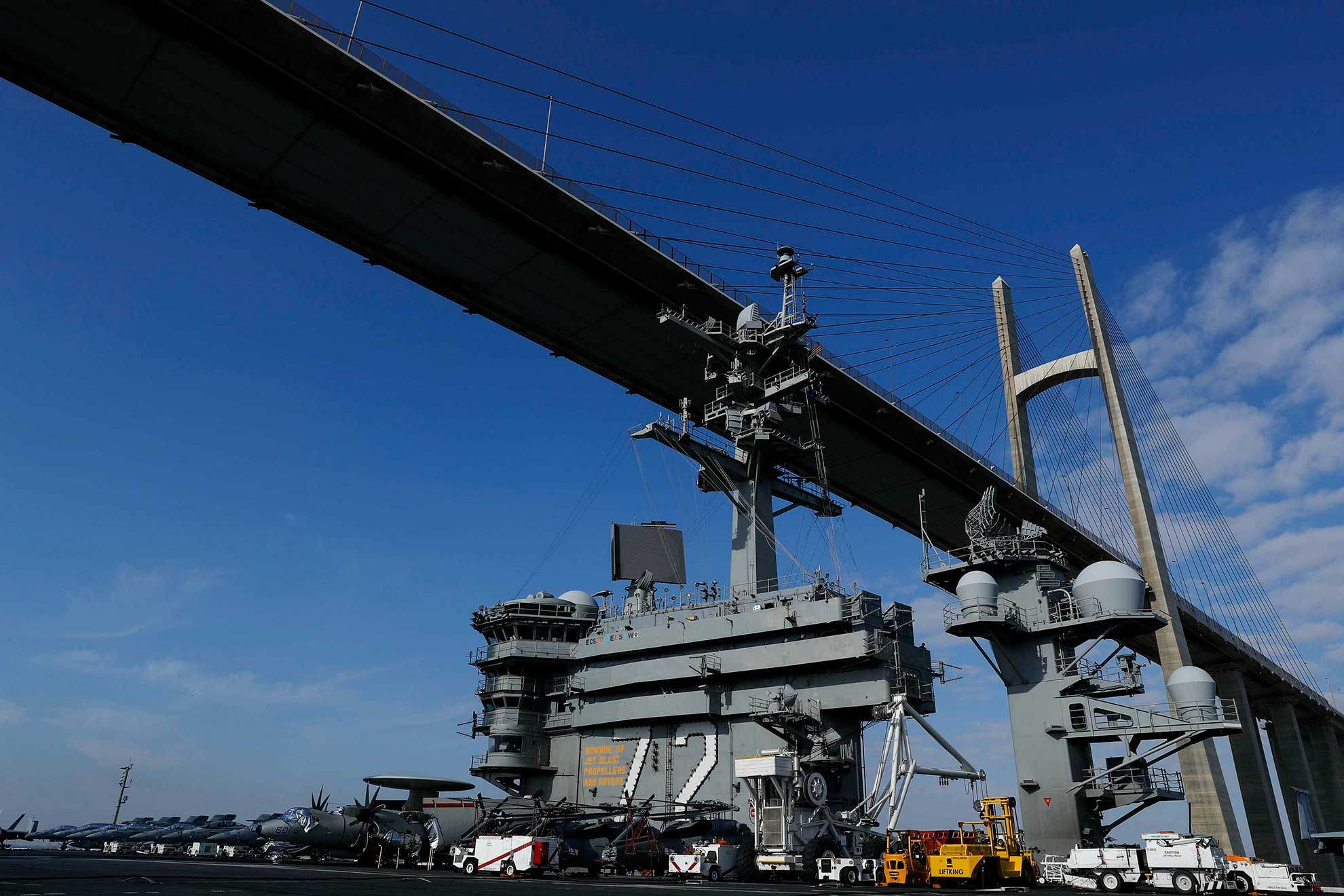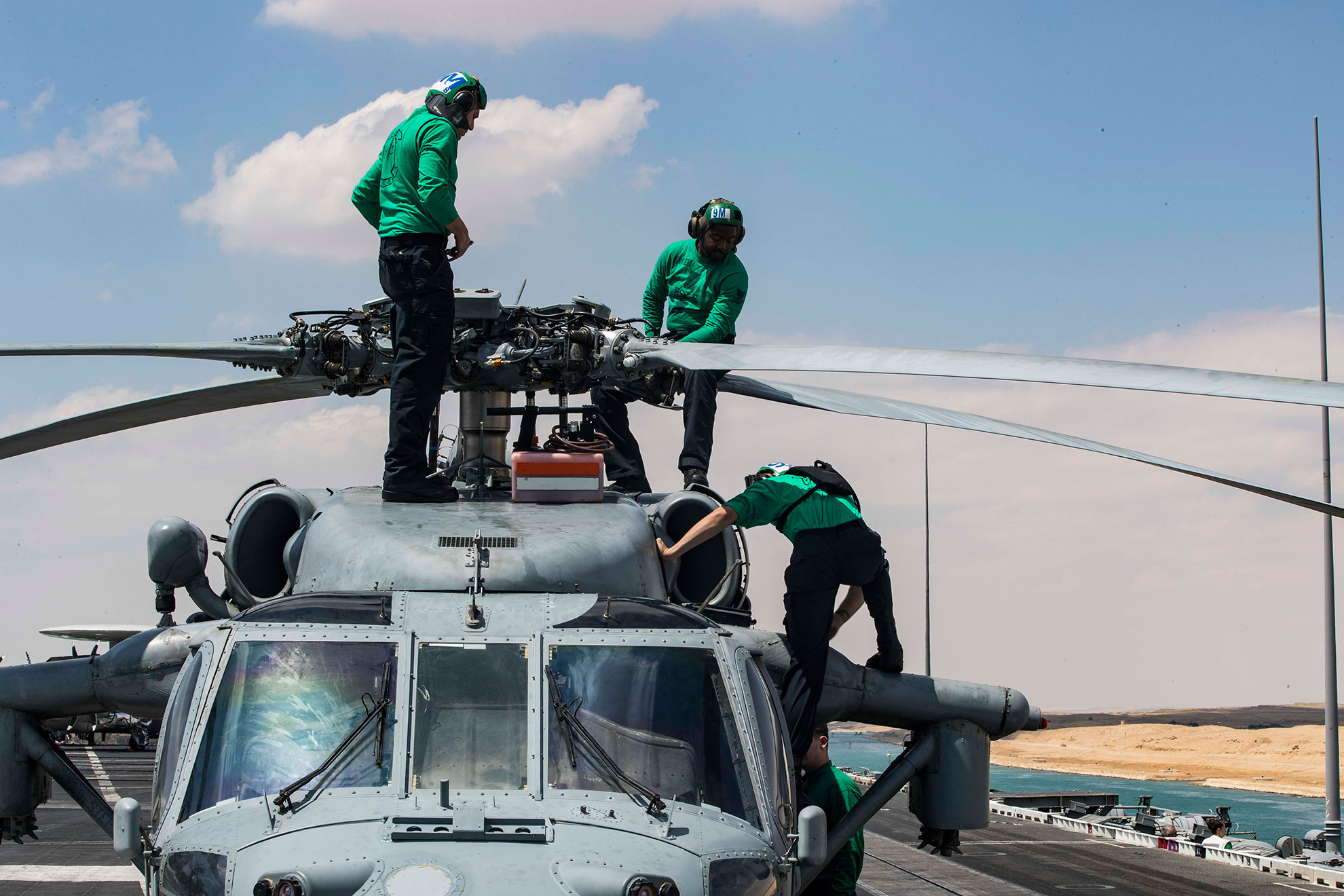The Suez Canal is a 120-mile long narrow channel that connects the Mediterranean Sea to the Red Sea. The expedited transit of ABECSG through the Suez and into the 5th Fleet area of operation demonstrates the flexibility of a multinational, multi-platform unit.
Red Sea ─ (NNS) ─ The Abraham Lincoln Strike Group (ABECSG) transited the Suez Canal, May 9.
The Nimitz-class aircraft carrier USS Abraham Lincoln (CVN 72), the Alvaro de Bazan-class frigate ESPS Mendez Nunez (F 104), the Ticonderoga-class guided-missile cruiser USS Leyte Gulf (CG 55) and the Arleigh Burke-class guided-missile cruiser USS Bainbridge (DDG 96) departed the U.S. 6th Fleet and entered the U.S. 5th Fleet area of operations.
ABECSG has been conducting operations in the U.S. 6th Fleet area of operations for several weeks, but expedited their transit to U.S. Central Command (CENTCOM) to protect U.S. forces and interests in the region. ABECSG will be positioned by CENTCOM where it will best be able to protect U.S. forces and interests in the region and to deter any aggression.
“Our Navy exists to deter conflict, ensure freedom of the seas, preserve our strategic interests and those of our allies, and respond to crises around the world,” said Rear Adm. John Wade, commander, Carrier Strike Group Twelve. “We have trained hard and worked diligently to ensure we are prepared and ready to conduct a whole host of missions wherever and whenever required."
Carrier strike groups are inherent maneuver forces that offer commanders the ability to flexibly respond to a wide variety of missions and contingencies, and are capable of being redeployed rapidly across U.S. combatant command boundaries.
“One of our strengths as a strike group has been teamwork, led by Rear Admiral Wade’s positive emphasis on ‘team of teams,’” said Capt. Sean R. Anderson, commodore, Destroyer Squadron (DESRON) 2. “We really have the planning and coordination foundation in place that reaches well beyond our strike group, to aid our success.”
ABECSG has executed a rigorous training and readiness phase, developing and perfecting the warfighting capabilities of all strike group units through scenarios of increasing complexity and intensity designed to improve interoperability and engagement with allies and partners, and demonstrate the combat power and flexibility of naval forces.
The Suez Canal is a 120-mile long narrow channel that connects the Mediterranean Sea to the Red Sea. The expedited transit of ABECSG through the Suez and into the 5th Fleet area of operation demonstrates the flexibility of a multinational, multi-platform unit to respond whenever and wherever is required.
ABECSG provides a wide range of mission capabilities to include maritime security operations, expeditionary power projection, forward naval presence, crisis response, sea control, deterrence, counter-terrorism, security cooperation, and humanitarian assistance.
USS Abraham Lincoln Carrier Strike Group Completes Suez Transit
Suez Canal (May 9, 2019) The Nimitz-class aircraft carrier USS Abraham Lincoln (CVN 72) and carrier strike group completes a southbound Suez Canal transit. Abraham Lincoln Carrier Strike Group (ABECSG) is deployed to U.S. Central Command area of responsibility in order to defend American forces and interests in the region. With Abraham Lincoln as the flagship, deployed strike group assets include staffs, ships and aircraft of Carrier Strike Group 12 (CSG 12), Destroyer Squadron 2 (DESRON 2), USS Leyte Gulf (CG 55) and Carrier Air Wing 7 (CVW 7); as well as the Spanish Navy Àlvaro de Bazàn-class frigate ESPS Méndez Núñez (F 104) — U.S. Navy video by Mass Communication Specialist 2nd Class Clint Davis.

